Argentina is one of the world’s most biodiverse countries, boasting vast territory and a wide range of climates. It includes 18 ecoregions—15 continental, 2 oceanic, and 1 Antarctic. Much of its rich biodiversity is represented by its bird species, with approximately 980 stable species currently found in the country. Unfortunately, many of these birds face threats and are endangered due to human activity.
Would you like to learn about some of these species? In this article from EcologíaVerde, we introduce some notable birds of Argentina, their features, and their conservation status. If you’re interested in Argentina’s birds, keep reading!
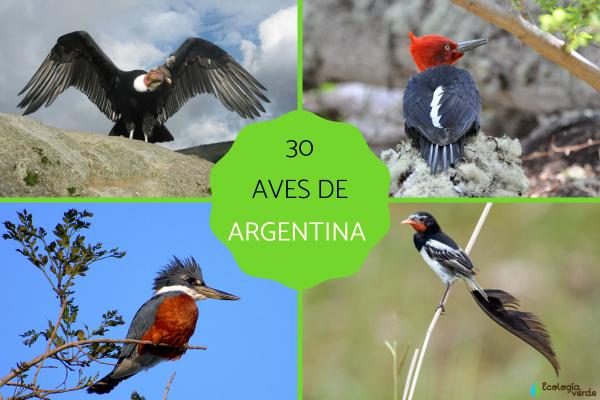
Andean Condor
Southern Caracara
Jabiru Stork
Magellanic Woodpecker
Upland Goose (Royal Goose)
Long-tailed Reed Finch (Yetapá)
Giant Kingfisher
Blue-crowned Motmot
Red-capped Cardinal
Rufous Hornero
Additional Birds and Endangered Species
The Andean Condor is one of the largest flying birds globally, with a wingspan of about 3 meters and weighing up to 12 kilograms. It can live up to 70 years and ranges along the Andes from Venezuela to Tierra del Fuego and the Staten Islands. Males feature a fleshy crest called a caruncle and a brown iris, while females lack the crest and develop reddish irises upon sexual maturity. These scavengers can go several days without eating, storing up to 4 kilograms of carrion in their crop.
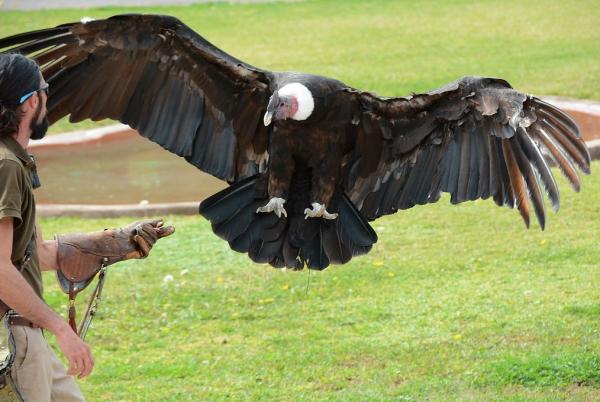
[Read more about why the Andean Condor is endangered]
This large raptor is widely distributed throughout Argentina and adapts to diverse environments such as forest edges, urban areas, and rural roadsides. It primarily feeds on carrion but also hunts insects, small mammals, and other birds.
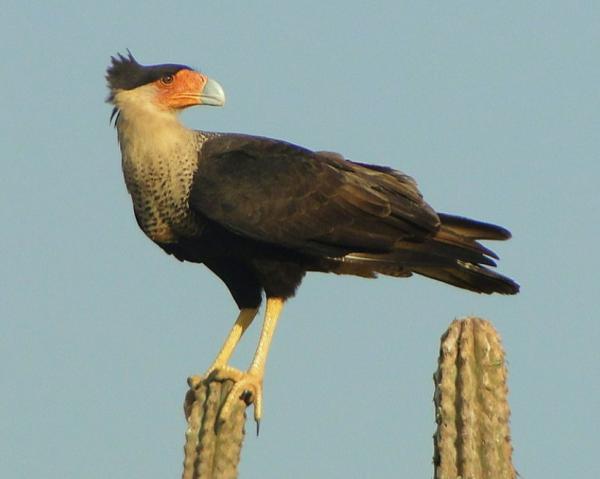
[Learn more about scavenger animals]
The Jabiru is the tallest flying bird in Central and South America and ranks second in wingspan on the continent after the Andean Condor. It inhabits areas near lagoons and rivers, feeding mainly on fish, mollusks, and amphibians. Its name derives from the Guarani language meaning "swollen neck."
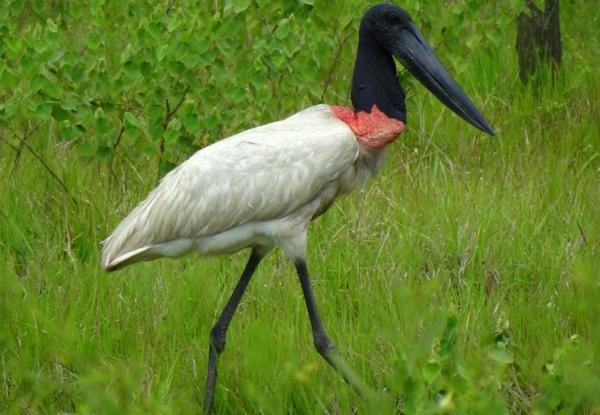
Endemic to the Andean-Patagonian forests, this species is commonly seen in Nahuel Huapi and Lanín National Parks. Males have a red head and crest, whereas females have black. They are adept climbers, feeding on insects found under tree bark.
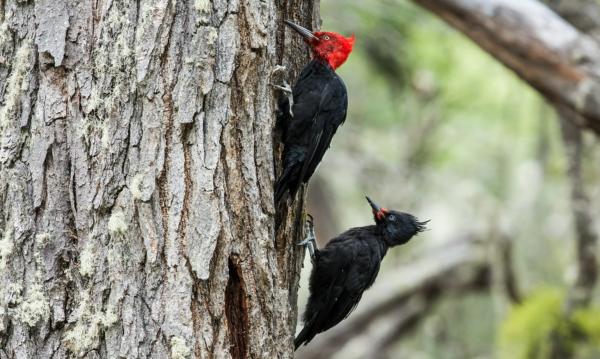
[Discover more insectivorous animals and examples]
Also known as the royal goose, it is typical of lake, lagoon, and river coasts. Distributed from Chile’s Colchagua region and Argentina’s Neuquén province down to Tierra del Fuego and the Falkland Islands. Recognizable by its gray head, it nests concealed in waterside vegetation.
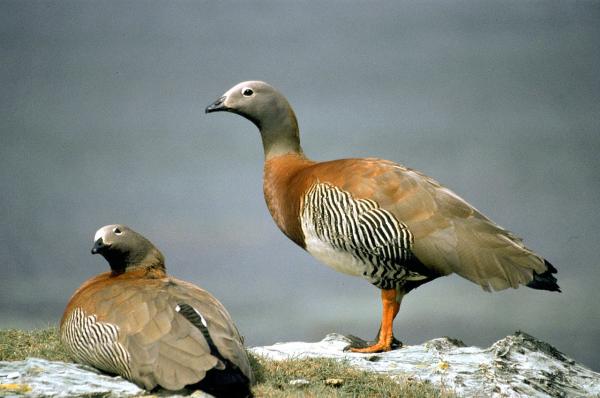
Found in Argentina’s Formosa and Corrientes provinces, rarely in Chaco and Misiones. Prefers humid grasslands near marshes or wetlands. Males have an exceptionally long tail, reaching up to 31 centimeters. It faces severe threats primarily due to habitat destruction.
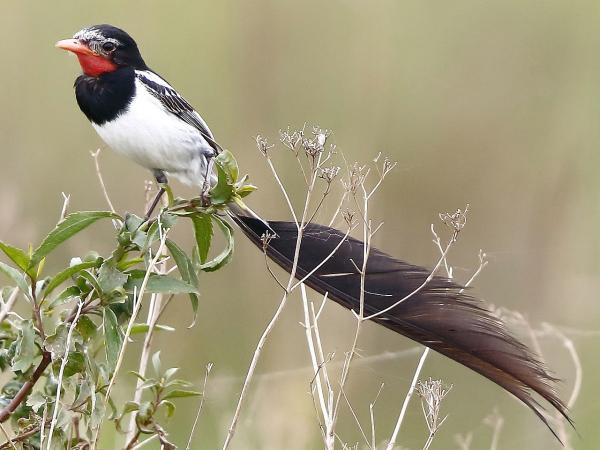
This species is found almost throughout Argentina, inhabiting riverbanks, lakes, lagoons, swamps, and even urban zones. Males and females look very similar, with long black beaks. They dive to catch fish from perches.
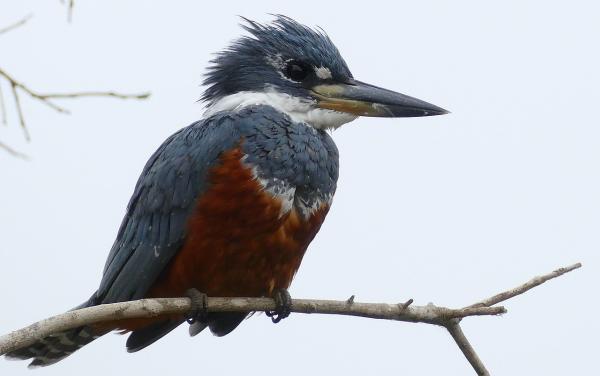
Distributed from northern Argentina southwards to San Juan, San Luis, Córdoba, La Pampa, and Buenos Aires provinces. Inhabits diverse environments including savannas and forests. Moves by hopping and short flights between trees. Males have black facial masks distinguishing them from females. Their diet includes insects, arachnids, and fruits.
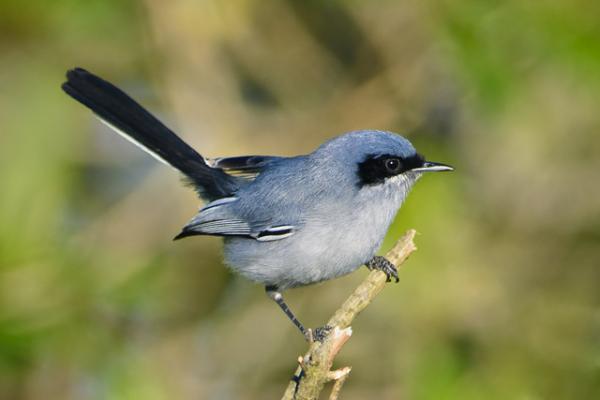
Common in northern and central Argentina extending to northern Buenos Aires. Found near water bodies, usually solitary or in pairs. Its striking red head stands out. Mainly seed-eaters, but also consume insects during breeding season.
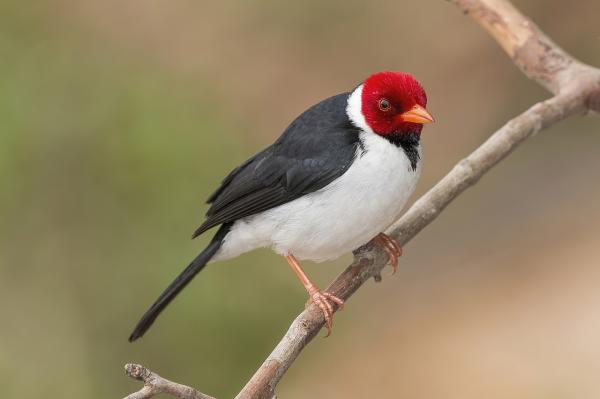
The national bird of Argentina, it inhabits various environments and is common in urban areas. Small and sedentary, it shows no sexual dimorphism. Primarily insectivorous, occasionally feeding on seeds and vegetation. Known for building distinctive mud nests shaped like ovens, hence the name “hornero” (oven-builder).
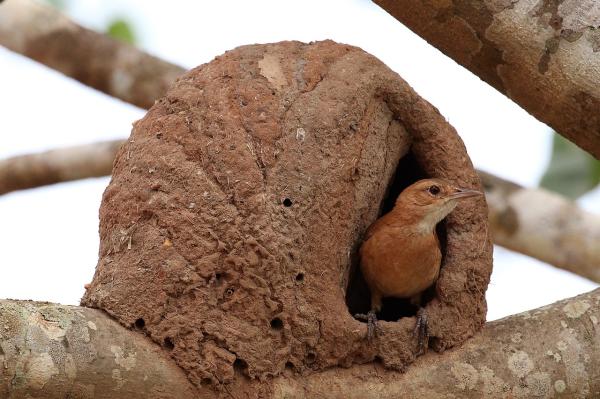
Besides the ten species described, Argentina hosts many more birds, some of which are critically endangered or vulnerable. Here are notable species to watch:
Grey-headed Albatross (Thalassarche chrysostoma)
Southern Rockhopper Penguin (Eudyptes chrysocome)
Bare-faced Curassow (Crax fasciolata)
Austral Caracara (Phalcoboenus australis)
Chaco Eagle (Buteogallus coronatus)
Harpy Eagle (Harpia harpyja)
Yellow Cardinal (Gubernatrix cristata)
Chestnut Huet-Huet (Pteroptochos castaneus)
Vinaceous Amazon (Amazona vinacea)
Military Macaw (Ara militaris)
Black-winged Ground-Cuckoo (Eleothreptus anomalus)
Masked Yellowthroat (Coryphaspiza melanotis)
For photos and detailed information on these birds, please visit our dedicated Argentina birds section.
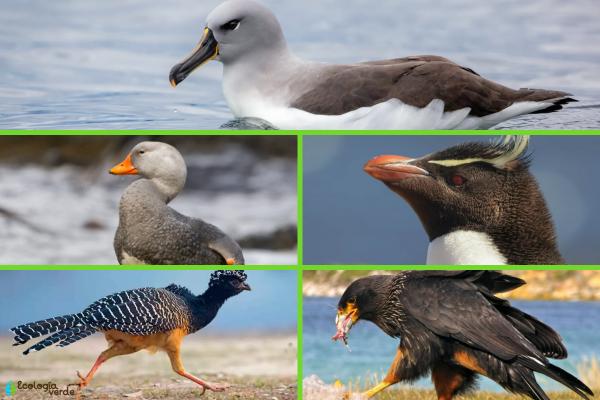
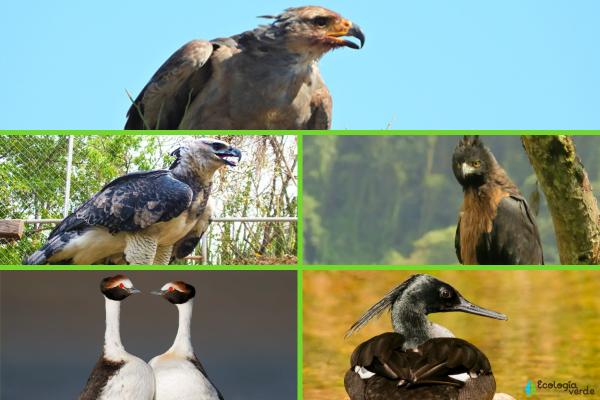
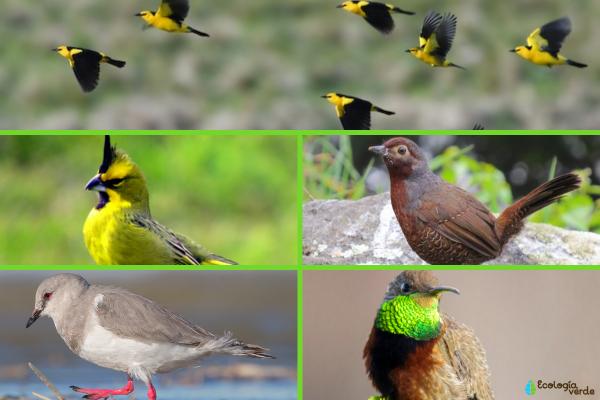

Explore more about Argentina’s rich flora and fauna in our related articles.
Bibliography
Birds of Argentina. Available at: https://es.wikipedia.org/wiki/Aves_de_Argentina
Categorization of the Birds of Argentina according to their conservation status. Available at: https://avesargentinas.org.ar/sites/default/files/Categorizacion-de-aves-de-la-Argentina.pdf
Red Lists of the International Union for Conservation of Nature (IUCN). Website: https://www.iucnredlist.org/es
Biodiversity Information System of the National Parks Administration, Argentina. Website: https://sib.gob.ar/portada
animal tags: Birds Argentina
We created this article in conjunction with AI technology, then made sure it was fact-checked and edited by a Animals Top editor.